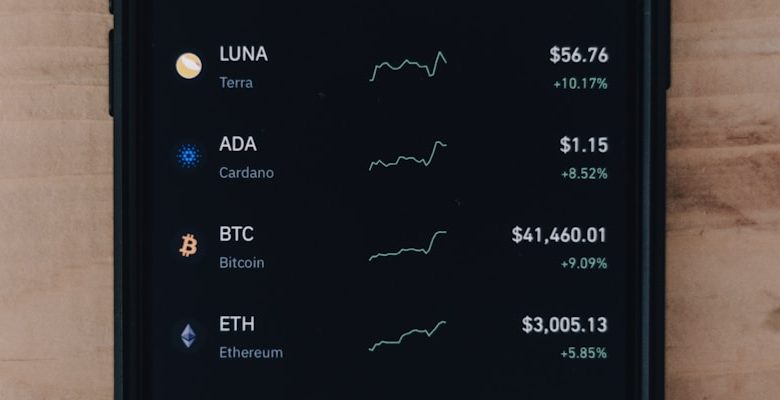How Blockchain is Influencing Global Trade Finance

- Understanding the basics of blockchain technology
- The impact of blockchain on traditional trade finance processes
- Improving transparency and security in global trade finance with blockchain
- Key players in the adoption of blockchain technology in trade finance
- Challenges and opportunities of integrating blockchain in global trade finance
- Future outlook: How blockchain is reshaping the future of trade finance
Understanding the basics of blockchain technology
Blockchain technology is a revolutionary innovation that is changing the way transactions are conducted across various industries, including global trade finance. Essentially, a blockchain is a decentralized and distributed digital ledger that records transactions across a network of computers. Each transaction is securely encrypted and linked to the previous one, forming a chain of blocks. This makes the information stored on a blockchain transparent, immutable, and tamper-proof.
One of the key features of blockchain technology is its ability to create trust among parties that do not know each other. This is achieved through consensus mechanisms, such as proof of work or proof of stake, which ensure that all participants in the network agree on the validity of transactions. By removing the need for intermediaries, blockchain reduces costs, speeds up transactions, and minimizes the risk of fraud.
In the context of global trade finance, blockchain technology has the potential to streamline processes, increase efficiency, and reduce the reliance on paper-based documentation. By digitizing trade documents, such as letters of credit, bills of lading, and invoices, blockchain can facilitate real-time tracking of goods, automate compliance checks, and improve the overall transparency of trade transactions.
Furthermore, blockchain technology enables smart contracts, which are self-executing contracts with the terms of the agreement directly written into code. This allows for automatic execution of payments and other actions once predefined conditions are met. Smart contracts can help to reduce disputes, delays, and costs associated with traditional contract enforcement processes.
Overall, understanding the basics of blockchain technology is essential for businesses looking to leverage its benefits in global trade finance. By embracing this innovative technology, companies can gain a competitive edge, reduce operational inefficiencies, and enhance trust among trading partners. As blockchain continues to evolve and mature, its impact on global trade finance is expected to grow significantly in the coming years.
The impact of blockchain on traditional trade finance processes
Blockchain technology is revolutionizing traditional trade finance processes by offering a secure and transparent way to conduct transactions. This innovation has the potential to streamline and simplify the complex world of global trade finance, benefiting businesses and financial institutions alike.
One of the key impacts of blockchain on trade finance is the elimination of intermediaries in the process. By using a decentralized ledger system, blockchain allows for direct peer-to-peer transactions, reducing the need for third-party involvement and speeding up the overall process.
Additionally, blockchain technology provides increased security and transparency in trade finance transactions. Each transaction is recorded on a tamper-proof distributed ledger, ensuring that all parties have access to the same information and reducing the risk of fraud or errors.
Another significant benefit of blockchain in trade finance is the potential for smart contracts. These self-executing contracts automatically enforce and verify the terms of an agreement, reducing the need for manual processing and minimizing the risk of disputes.
In conclusion, blockchain is reshaping the landscape of global trade finance by offering a more efficient, secure, and transparent way to conduct transactions. As businesses and financial institutions continue to adopt this technology, the traditional processes of trade finance are likely to be transformed for the better.
Improving transparency and security in global trade finance with blockchain
Blockchain technology has revolutionized global trade finance by enhancing transparency and security in transactions. By utilizing blockchain, all parties involved in a trade deal can have access to a secure and unalterable digital ledger. This ensures that the information shared is accurate and up-to-date, reducing the risk of fraud and errors.
With blockchain, smart contracts can be created to automate and enforce the terms of the trade agreement. This eliminates the need for intermediaries and reduces the time and costs associated with traditional paper-based processes. Additionally, blockchain allows for real-time tracking of goods along the supply chain, providing visibility and accountability at every stage.
One of the key benefits of blockchain in global trade finance is the prevention of double financing and invoice fraud. By recording all transactions on a decentralized ledger, the risk of duplicate financing or fraudulent invoices is significantly reduced. This not only protects the interests of all parties involved but also improves trust and efficiency in the trade finance ecosystem.
Key players in the adoption of blockchain technology in trade finance
The key players driving the adoption of blockchain technology in trade finance are a diverse group of stakeholders from various sectors. These entities play a crucial role in the development and implementation of blockchain solutions that are revolutionizing the global trade landscape.
One of the prominent players in this space is financial institutions, including banks and other traditional lenders. These institutions are leveraging blockchain technology to streamline trade finance processes, reduce paperwork, and enhance transparency and security in transactions. By embracing blockchain, financial institutions can offer faster, more cost-effective trade finance solutions to their clients.
Another key player in the adoption of blockchain technology in trade finance is technology companies. These companies are at the forefront of developing blockchain-based platforms and solutions that enable seamless and secure trade finance transactions. By partnering with financial institutions and other stakeholders, technology companies are driving innovation and shaping the future of trade finance.
Additionally, regulatory bodies and industry associations are playing a significant role in promoting the adoption of blockchain technology in trade finance. These entities are working to establish standards, guidelines, and best practices for blockchain implementation in the trade finance sector. By providing regulatory clarity and fostering collaboration among stakeholders, regulatory bodies and industry associations are paving the way for widespread adoption of blockchain technology in trade finance.
Overall, the collaboration and synergy among financial institutions, technology companies, regulatory bodies, and industry associations are driving the adoption of blockchain technology in trade finance. Together, these key players are reshaping the trade finance landscape, making transactions more efficient, secure, and transparent for businesses around the world.
Challenges and opportunities of integrating blockchain in global trade finance
Integrating blockchain in global trade finance presents both challenges and opportunities for the industry. This technology has the potential to revolutionize the way transactions are conducted, providing increased security, transparency, and efficiency. However, there are also hurdles that need to be overcome in order to fully realize the benefits of blockchain in trade finance.
One of the main challenges of integrating blockchain in global trade finance is the complexity of the existing systems and processes. Many trade finance operations are still paper-based and rely on manual verification, which can slow down transactions and increase the risk of fraud. Implementing blockchain technology requires a significant overhaul of these legacy systems, which can be costly and time-consuming.
Another challenge is the lack of standardization in the industry. Different countries and institutions have varying regulations and protocols when it comes to trade finance, making it difficult to create a universal blockchain solution that can be adopted worldwide. Overcoming these regulatory hurdles will be crucial in ensuring the widespread adoption of blockchain in global trade finance.
Despite these challenges, there are also numerous opportunities that come with integrating blockchain in global trade finance. One of the main benefits is the increased security and transparency that blockchain provides. By recording transactions on a decentralized ledger, blockchain can help prevent fraud and ensure that all parties have access to the same information in real-time.
Blockchain also has the potential to streamline the trade finance process, reducing the time and costs associated with transactions. Smart contracts, which are self-executing contracts with the terms of the agreement directly written into code, can automate many aspects of trade finance, such as payment processing and document verification.
Overall, while there are challenges to overcome, the opportunities of integrating blockchain in global trade finance are vast. By leveraging this technology, the industry can improve security, transparency, and efficiency, ultimately benefiting all parties involved in international trade.
Future outlook: How blockchain is reshaping the future of trade finance
Looking ahead, the future outlook for how blockchain technology is reshaping the landscape of trade finance is incredibly promising. As more businesses and financial institutions embrace this innovative technology, we can expect to see significant improvements in efficiency, transparency, and security within global trade transactions.
Blockchain has the potential to streamline the entire trade finance process by providing a secure and decentralized platform for all parties involved to exchange information and value. This means faster processing times, reduced costs, and minimized risks of fraud or errors.
Furthermore, the use of smart contracts on the blockchain can automate and enforce the terms of trade agreements, eliminating the need for manual intervention and reducing the likelihood of disputes. This level of automation can drastically speed up the settlement process and ensure that all parties are held accountable for their obligations.
Overall, the integration of blockchain technology in trade finance is revolutionizing the way global trade is conducted. By leveraging the benefits of blockchain, businesses can expect to see increased efficiency, reduced costs, and improved trust among trading partners. It is clear that blockchain is not just a trend but a fundamental shift in how trade finance operates in the modern era.



